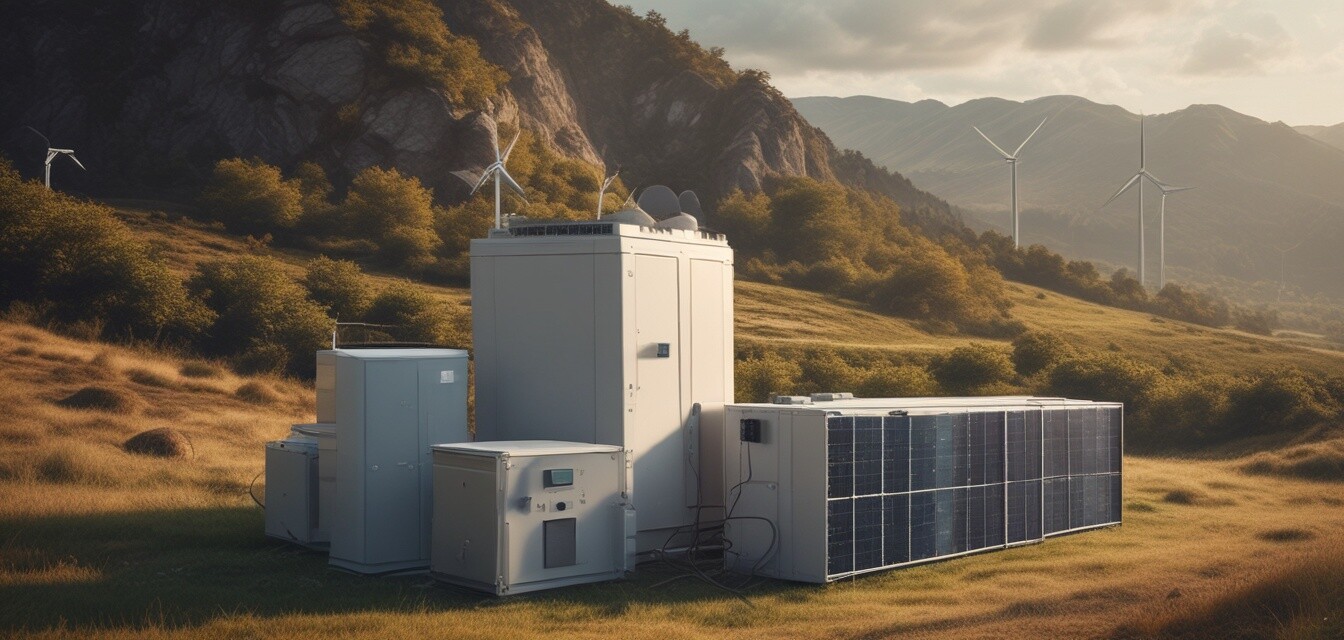
The Importance of Energy Storage in Renewable Appliances
Key Takeaways
- Energy storage is essential for maximizing the efficiency of renewable appliances.
- Stored energy can help reduce costs and reliance on the grid during peak usage times.
- Innovative technologies are continually emerging in the field of energy storage.
- Understanding energy management can lead to significant savings and a reduced carbon footprint.
- Investing in energy-efficient appliances contributes to sustainability efforts.
With the growing concern over energy consumption and sustainability, the importance of energy storage in renewable appliances cannot be overstated. As more households and businesses adopt energy-efficient appliances, understanding how energy storage solutions enhance their functionality is crucial for effective energy management. In this article, we will explore the significance of energy storage, the technologies involved, and the benefits it brings to users and the environment.
Understanding energy storage
Energy storage refers to the ability to capture and store energy for later use. This capability is especially important for renewable energy sources, which can be intermittent by nature. For example, solar panels generate electricity during sunny days, but energy demand often peaks during the evenings when solar output wanes. Thus, energy storage systems play a pivotal role in ensuring a steady supply of energy.
Types of energy storage technologies
| Type | Description | Usage |
|---|---|---|
| Battery storage | Stores electrical energy in chemical form for later use. | Common in solar energy systems to provide power during non-sunlight hours. |
| Flywheels | Uses mechanical energy for rapid energy storage and release. | Ideal for applications that require quick bursts of power. |
| Pumped hydro | Stores energy by pumping water to higher elevations and releasing it through turbines. | Effective for large-scale energy storage needs. |
| Compressed air | Uses compressed air stored in underground caverns to generate electricity. | Can be used in conjunction with renewable sources to balance supply and demand. |
Benefits of energy storage in renewable appliances
Pros
- Enhances reliability by smoothing out energy supply from intermittent sources.
- Allows consumers to utilize renewable energy even when generation is low.
- Can lead to significant cost savings on energy bills during peak hours.
- Contributes to a greener environment by reducing reliance on fossil fuels.
- Facilitates energy independence and security for households and businesses.
Cons
- High initial investment for energy storage systems.
- Some technologies may require significant space for installation.
- Maintenance and lifespan issues can affect long-term savings.
Energy management and its importance
Proper energy management plays a crucial role in maximizing the benefits of energy storage systems. By strategically managing energy consumption, users can lower their energy costs, reduce waste, and utilize stored energy effectively. Here are some tips for better energy management in households:
Tips for effective energy management
- Monitor energy usage with smart energy management systems.
- Set appliances to operate during off-peak hours whenever possible.
- Conduct regular energy audits to identify areas for improvement.
- Utilize programmable thermostats for heating and cooling appliances.
- Invest in energy-efficient appliances to reduce overall consumption.
Innovations in energy storage
The field of energy storage is constantly evolving, with new technologies emerging that aim to improve efficiency and effectiveness. Some of the latest innovations include:
- Solid-state batteries: These offer higher energy density and longer lifespan compared to traditional lithium-ion batteries.
- Flow batteries: Ideal for large-scale applications, these batteries allow for easy scalability and longer operational life.
- Hydrogen storage: This involves using excess renewable energy to create hydrogen, which can be stored and converted back to electricity when needed.
Conclusion
Energy storage is becoming increasingly essential in powering renewable appliances effectively. With the rise in renewable energy adoption, understanding how to harness stored energy can lead to a more sustainable future. By investing in energy-efficient appliances and energy storage solutions, consumers can take significant strides towards lower energy bills and a greener planet.
For those looking to learn more about energy-efficient appliances, please check out our categories on air conditioners, dishwashers, and heaters.
Stay informed about the latest trends in energy-efficient appliances by visiting our news and trends section.
